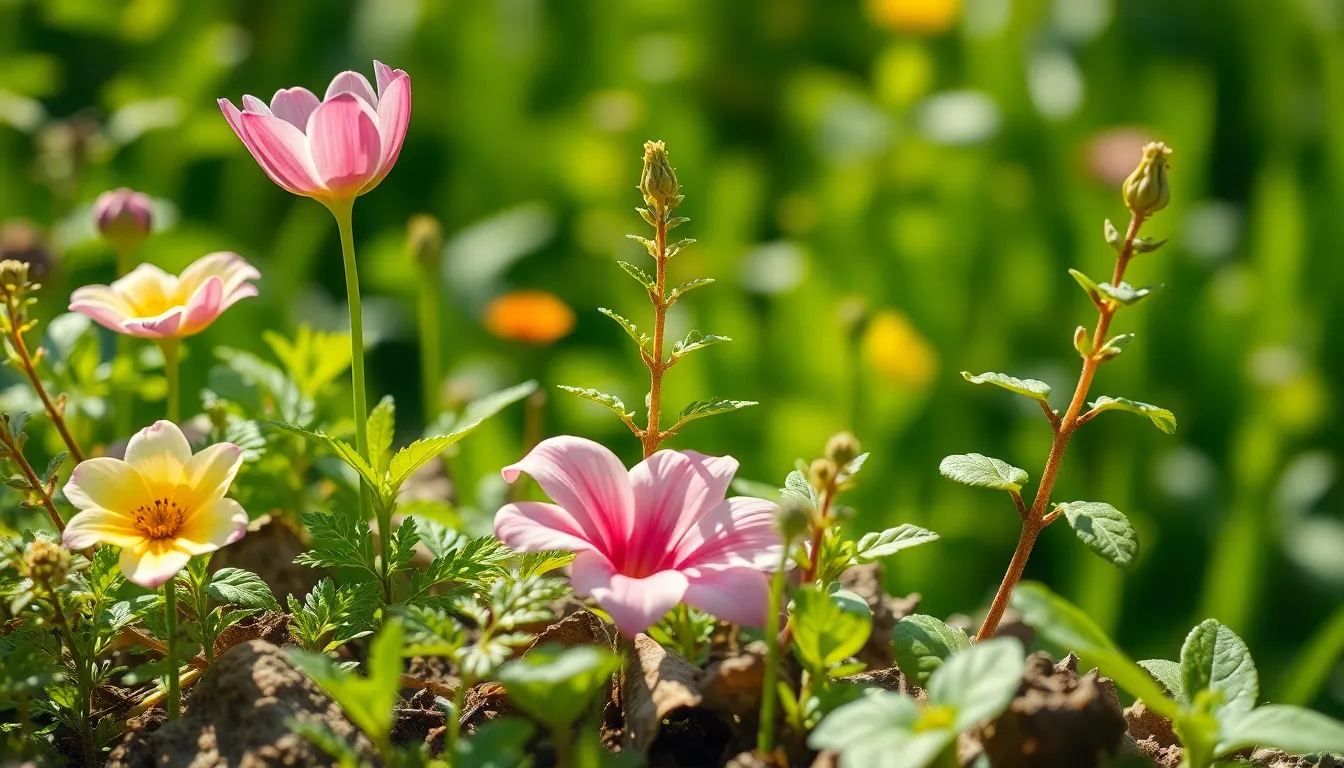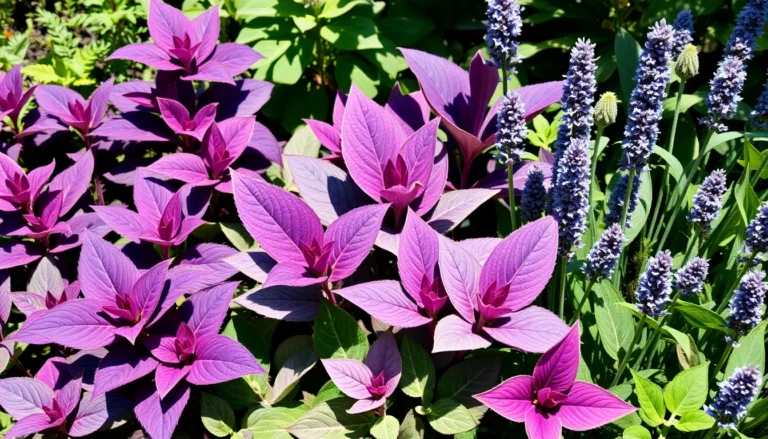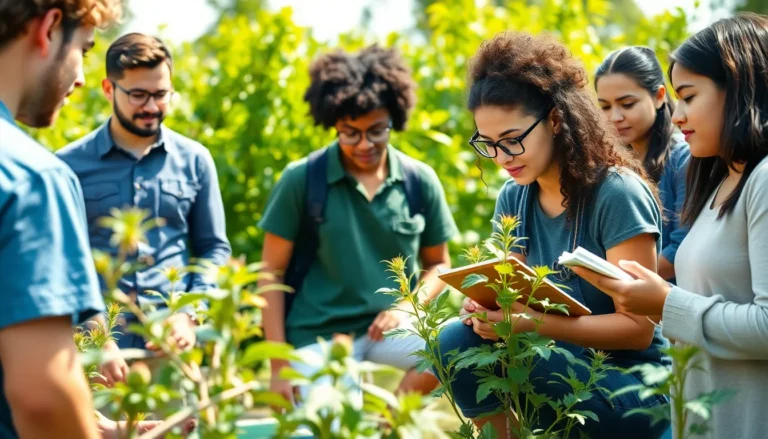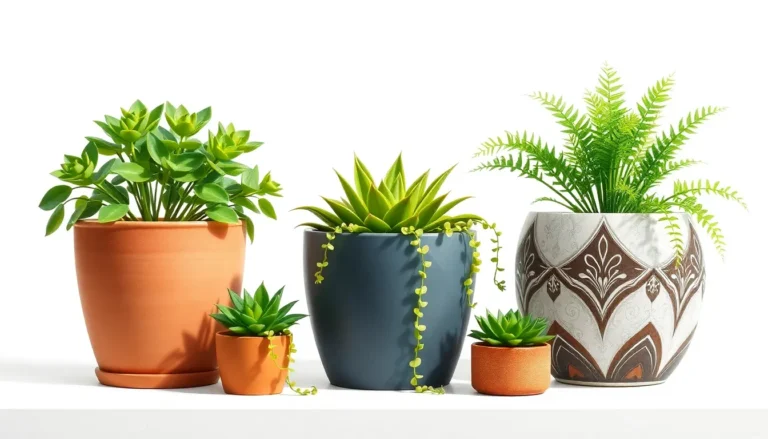When it comes to the world of plants, botany is the VIP pass that unlocks the secrets of nature’s green wonders. Imagine a science that dives deep into the leafy realm, exploring everything from the tiniest seed to the grandest tree. Botany isn’t just for those with a green thumb; it’s for anyone curious about what makes our planet tick—one petal at a time.
Definition of Botany
Botany is the scientific study of plants, encompassing their structure, growth, reproduction, metabolism, development, diseases, and evolution. This field examines various types of plants, including flowering plants, trees, ferns, and algae. Specializations within botany, such as plant taxonomy, plant physiology, and phytochemistry, provide insights into different aspects of plant life.
Researchers categorize botany into several branches. Plant taxonomy focuses on naming and classifying plants based on shared characteristics. Ethnobotany explores the relationship between people and plants, including how various cultures use plants in medicine, food, and rituals. Moreover, plant physiology studies the inner workings of plants, revealing how they function and interact with their environment.
Understanding botany has significant implications for multiple fields. Agricultural practices rely on botanical knowledge to enhance crop yields and develop sustainable farming methods. Conservation biology utilizes insights from botany to protect endangered plant species and ecosystems. Furthermore, biotechnology applies principles of botany to develop new products and solutions, such as biofuels and pharmaceuticals.
Investigations in botany continually evolve, driven by advances in molecular biology and genetics. Researchers employ cutting-edge technologies to decode plant genomes, leading to improved understanding of plant traits and resilience. This ongoing discovery highlights the vital role plants play in addressing global challenges, including climate change and food security.
Historical Context of Botany
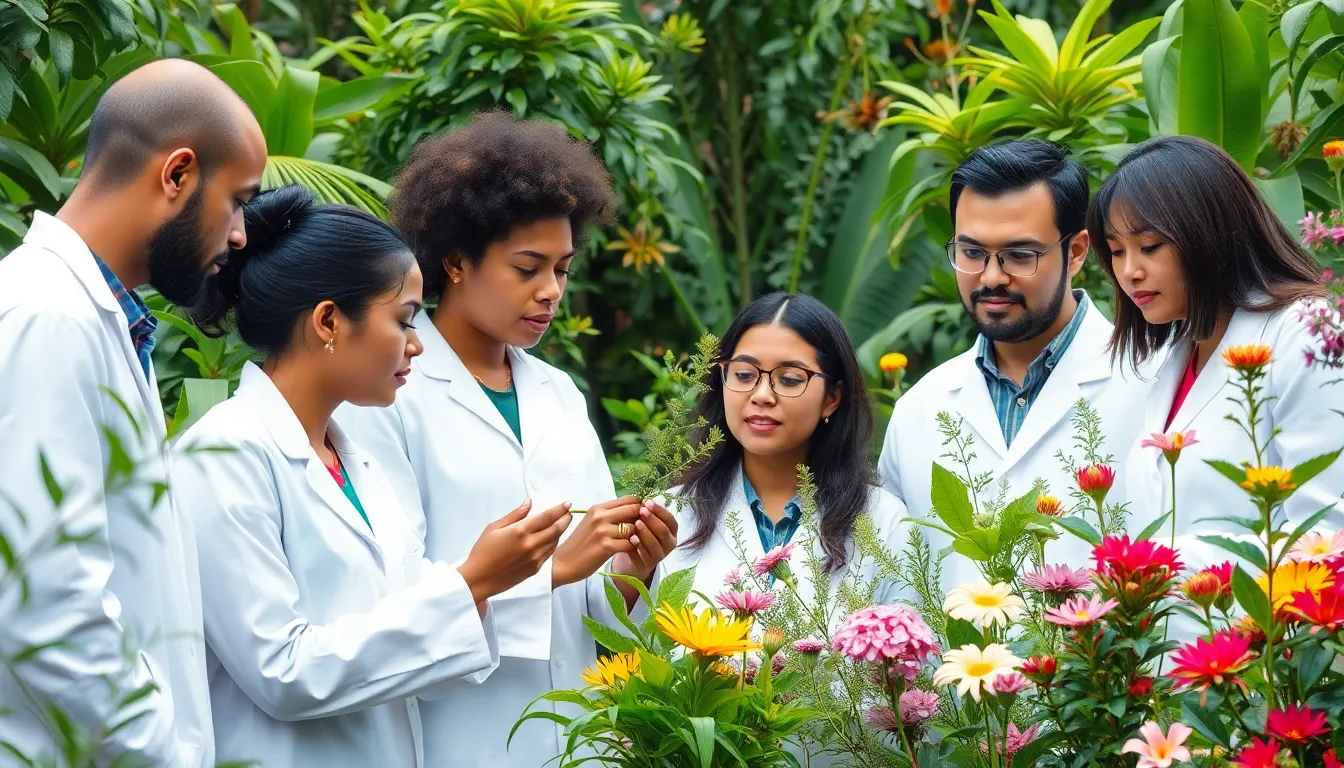
Botany has a rich historical backdrop that reflects humanity’s evolving relationship with plants. Throughout time, the study of plants has significantly developed.
Ancient Civilizations and Botany
Ancient civilizations recognized the importance of plants for survival and health. Egyptians used papyrus for writing and healing herbs for medicinal purposes. Chinese scholars documented plant properties in herbal texts, emphasizing their significance in traditional medicine. In contrast, Greek philosophers like Aristotle discussed plant classification, laying groundwork for future botanical studies. Observations in these societies highlighted the connection between plants and human well-being.
The Evolution of Botanical Science
The evolution of botanical science spans several centuries. In the 16th century, the invention of the printing press facilitated the distribution of botanical knowledge. Herbalists contributed to this expansion through detailed illustrations and descriptions of plant species. The 18th century marked a significant transformation with Carl Linnaeus’ system of binomial nomenclature, enabling standardized naming. Advancements in microscopy and plant physiology in the 19th century further propelled the field. Today, botany incorporates molecular biology, unraveling complexities of plant genetics and adaptation. This progression underscores the dynamic nature of botany, continually adapting to new discoveries and challenges.
Branches of Botany
Botany includes various branches that enhance understanding of plant life.
Plant Anatomy
Plant anatomy studies the structure of plants. It examines components like roots, stems, leaves, and flowers. Understanding cell types and tissue organization is crucial for revealing how plants grow and function. Microscopic techniques, such as histology, provide insights into plant cells’ organization and functions. Analyzing structures enables researchers to discern how different parts contribute to overall plant survival and health. This knowledge aids in addressing issues like disease resistance and adaptation.
Plant Physiology
Plant physiology focuses on the processes that sustain plant life. This branch investigates photosynthesis, respiration, and water transport. By examining how plants convert light into energy, scientists uncover mechanisms crucial for growth and reproduction. Studying nutrient uptake and hormonal regulation reveals how plants respond to their environment. Research in this field also helps optimize agricultural practices, enhancing crop yield and resilience. Understanding these physiological processes is vital for addressing challenges like drought and nutrient loss.
Plant Taxonomy
Plant taxonomy involves the classification and naming of plants. It establishes a framework for identifying species based on shared characteristics. Naming conventions, like binomial nomenclature, streamline communication among botanists. Taxonomy uses phylogenetic relationships to understand plants’ evolutionary history. This branch aids in conservation efforts by identifying endangered species and their habitats. Knowledge gained from taxonomy supports biodiversity preservation, ensuring the survival of various plant species in changing ecosystems.
Importance of Botany
Botany plays a crucial role in understanding the essential functions and benefits of plants.
Ecological Significance
Plants form the backbone of ecosystems. They produce oxygen through photosynthesis, crucial for nearly all living organisms. Diverse plant species contribute to habitat stability, supporting various organisms, including animals and insects. Biodiversity within plant life improves ecosystem resilience, enabling recovery from disturbances. Furthermore, plants play a pivotal role in regulating carbon dioxide levels, thus mitigating climate change impacts. Their presence also aids in soil formation and preservation, preventing erosion and maintaining water quality.
Economic Value
The economic impact of botany is substantial. Agriculture relies heavily on plant science for crop improvement, optimizing yields to feed growing populations. Medicinal plants provide essential resources for pharmaceuticals, contributing to public health globally. Horticulture thrives on botanists’ expertise, enhancing landscape design and aesthetics. Additionally, industries such as forestry benefit from sustainable practices that promote responsible resource management. Understanding plant genetics fosters innovations in biotechnology, leading to new products that can address global challenges.
Recent Advances in Botany
Recent advances in botany emphasize the integration of technology with plant science. Researchers leverage innovative methods to enhance understanding of plant behavior and development.
Biotechnology in Botany
Biotechnology advances significantly impact botany. Genetic engineering enables the modification of plant traits to increase resilience against pests and diseases. For example, transgenic crops, such as Bt cotton, express natural insecticides, thus reducing reliance on chemical pesticides. Additionally, tissue culture techniques enhance propagation and preservation of endangered plant species. These biotechnological innovations not only contribute to agricultural efficiency but also support sustainability efforts in plant conservation.
Conservation Efforts
Conservation efforts in botany focus on preserving biodiversity and protecting endangered plant species. Programs implement habitat restoration strategies that restore ecosystems and support native flora. For instance, initiatives like seed banks store genetic material to safeguard plant diversity for future generations. Moreover, collaboration among governments, NGOs, and local communities promotes awareness and education regarding the importance of preserving plant life. Such collective actions aim to mitigate the effects of climate change and habitat loss while fostering a deeper appreciation for the role plants play in our environment.
Conclusion
Botany serves as a vital link between humanity and the plant kingdom. Its insights not only deepen understanding of plant life but also highlight the critical role plants play in sustaining ecosystems. As the field continues to evolve with technological advancements and research, its applications in agriculture and conservation become increasingly significant.
The ongoing exploration of botany fosters a greater appreciation for plants and their contributions to everyday life. By engaging with this dynamic science, individuals can better understand the intricate relationships that exist within nature and the importance of preserving plant diversity for future generations.

